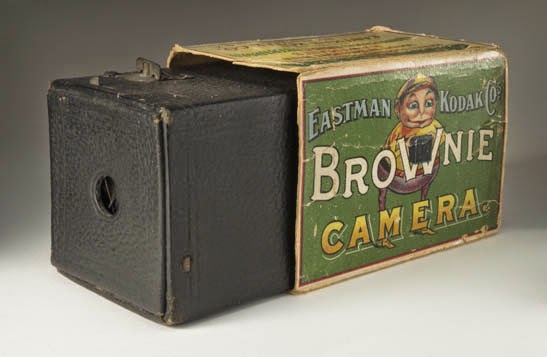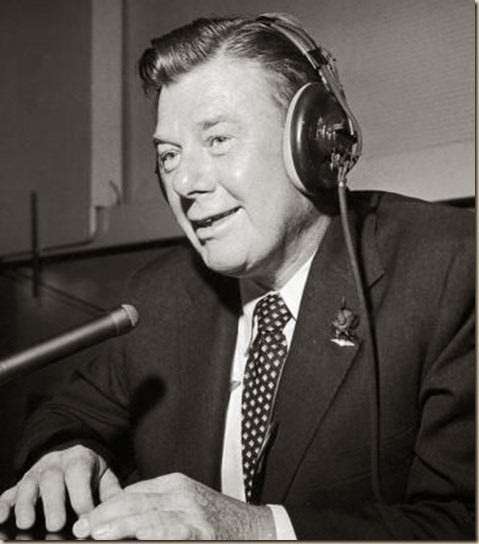Even though I've finally retired, I still "play" radio and TV. I've left instructions that when they finally send me to "the Home," they are to include a cardboard mic and toy TV camera that I can amuse myself with while I wait for my final ride home.
 |
Meanwhile, I'm still doing my OUT OF THE PAST show interviews on Virginia's Fairfax Cable Channel and posting them on the Internet at
www.otpfiles.blogspot.com
My focus lately has been WW2 veterans. I want to get as many of these heroes' stories on Video as I can.
Just last week we had scheduled a US fighter pilot named Bob Clark to appear on the show who had fought in the Battle of Britain during the summer and autumn of 1940.
Unfortunately, just a few days before the interview was scheduled, we learned that Bob had passed away.
Bob's participation in England's famous battle was very unusual because the US was
officially still "neutral" then and it was illegal for any American to participate in "Europe's War." The penalty for doing so was imprisonment and loss of citizenship.
In spite of that, at least 9 American pilots flew for the Brits. 9 was the "official" number, but there were many more, Bob Clark being one of them. Only 9 admitted their American citizenship and revealed their real names. The others, like Bob Clark listed false names and citizenship.
 |
One of the volunteers was 29 year old Billy Fiske, one of the most spectacular sportsmen in Olympic history. He had completed the Le Mans 24 hour auto race when he was only 19 and earned the title "The King of Speed" by dominating bobsledding at the age of 16, the youngest ever winner of a winter Olympics gold medal for the bobsled.
Fisk and, I believe, most of the other American pilots were killed in those dogfights. I understand that Hollywood either has or is thinking about a movie about Fiske. There is also an Aspin Colorado connection. Fiske was responsible for construction of the first ski lift at that location.
Technology moves so fast these days that it's almost impossible to keep up. In 1951 our music was all on 78 rpm records. A few years later the 45's and 33 1/3 came along. Then 8 track, then the cassette...etc.

Now, I'm not sure what the most popular listening device is for music. The Ipod? Heck, I can't keep up, but I know the audio cassette has almost disappeared. I received one last week that the person found in his parent's old cedar chest and had no idea what was on it or how to listen to it. But he suspected it might contain some valuable "family history."
It does, but the quality is poor.
It's of his father describing his adventures in WW1. If it's as interesting as I think it will be, I'll pass along a few excerpts. It would not be unusual for a few in our class to have had fathers who fought in WW1.
I've only been able to "skim" the tape, but one thing that got my attention was the fact that he mentioned "Peach Pits" a number of times. He said that Americans were collecting peach pits. I immediately thought of our childhood and the collection of tin cans and "silver paper."
 |
Well, it turns out that peach pits saved thousands of lives on the battlefield since it was learned that the dreaded poison gas the Germans were using could be subdued with activated charcoal, made from peach pits.
Nobody talks about WW1 anymore, but I believe most historians now agree that it shouldn't have happened.
They say it started almost by accident. So many nations had so many "treaties" that the one nut who shot the Archbishop Somebody of Somewhere more or less automatically triggered that horrible war.
The total number of military and civilian casualties in World War 1 was over 37 million.
The Battle of Verdun lasted 10 months, the French suffered 540,000 casualties and the Germans 430,000 and no strategic advantage was gained by either side.
After I've listened to the whole tape, I'll let you know what that voice from the past was thinking.
Stay tuned.
-Ed
Pile the bodies high at Austerlitz and Waterloo.
Shovel them under and let me work—
I am the grass; I cover all.
And pile them high at Gettysburg
And pile them high at Ypres and Verdun.
Shovel them under and let me work.
Two years, ten years, and passengers ask the conductor:
What place is this?
Where are we now?
I am the grass.
Let me work.
-Carl Sandburg
































